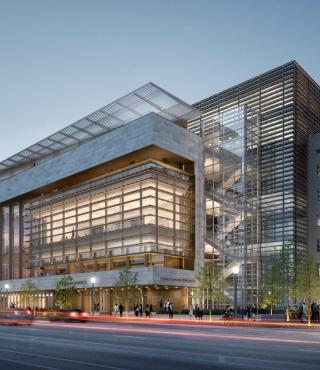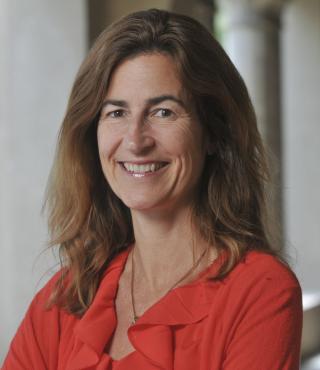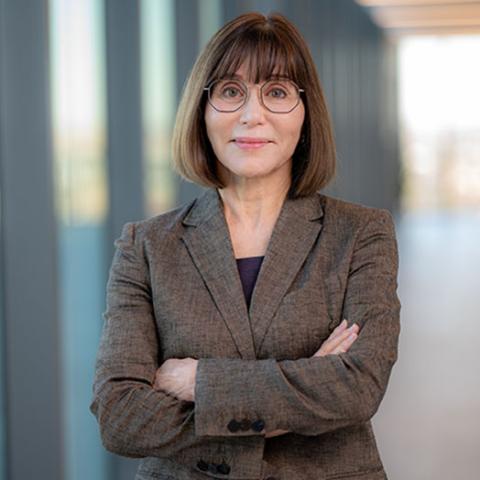Get to know Kathleen M. Sutcliffe, a Bloomberg Distinguished Professor with appointments in the Carey Business School, the School of Medicine (Anesthesia and Critical Care Medicine), the School of Nursing, the Bloomberg School of Public Health, and the Armstrong Institute for Patient Safety and Quality. She earned her PhD in Business Administration with a focus on organizational behavior and theory from the University of Texas at Austin.
Her research program has been devoted to investigating how organizations and their members cope with uncertainty and how organizations can be designed to be more reliable and resilient. She has investigated organizational safety, high reliability, and resilience practices in oil and gas exploration and production, chemical processing, steel production, wildland firefighting, and in healthcare. Her research has appeared widely in management and healthcare journals and she has co-authored seven books.
She serves on the editorial boards of several journals and is currently serving as a member of the National Academies of Science, Engineering and Medicine Transportation Research Board Committee on Emerging Trends in Aviation Safety. She has consulted with the leadership teams of numerous companies including Goldman Sachs, Georgia Pacific, Marathon Oil, and ThyssenKrupp.
Where did you grow up, and where did you do your studies?
I grew up partly in Alaska and partly in Michigan. I have two bachelor's degrees, one from the University of Michigan, one from the University of Alaska. I then went and got a master's degree from the University of Washington, in community health care and administration. Afterwards I managed two health care programs for the state of Alaska, and served as Health Director for the Aleutians Pribilof Islands Association. From there, I went to study for my PhD at the University of Texas.
How did your work in Alaska inspire the work that you're now doing?
In my first job after getting my second bachelor’s degree, I went to work as a nurse at the local clinic in Unalaska, Alaska. Unalaska, also known as Dutch Harbor, is the number one fishing port in the United States and is the site of the Discovery Channel’s series titled the Deadliest Catch. I worked there at the height of king crab fishing. For people working on those boats, accessing health care is no easy thing. More than once the Coast Guard flew me out to a crab boat because they were experiencing something urgent. In that environment, you have to accept that there is tremendous uncertainty every single day and you can't count on anything to go as planned.
Things that have never happened before happen all the time. That’s certainly been a theme in my research, how to deal with uncertainty and manage the unexpected. I think one of the biggest mistakes that we can make is thinking that we can manage risks by trying to predict extreme events. Black swan events, by definition, are without precedent. We don't have a very good track record of trying to identify them or predict them and I think when we're focusing on the extreme, we stop focusing on what's in front of us, which can lead to even bigger problems. And that's part of what my work has been all about.
What do you think are some misconceptions about the delivery of health care in rural areas?
Working in Alaska, I learned that we shouldn't underestimate the power of people who don't have big degrees. In these rural communities, a lot of what I saw wasn't simply acute or trauma kinds of events. More often than not people had psychosocial needs that were not necessarily being addressed. 90% of the cases that we would see were more about people coming in because they had this mild complaint, but they really needed somebody to care about them and to talk to them. It's a pretty lonely place out there, and people wanted to know that they mattered, and that there was somebody who was looking out for them. There are a number of ways to develop staff who aren’t psychiatrists to help address those psychosocial issues, which are vast.
What’s an insight you’ve derived from studying organizational behavior?
One example would be that best practices are not universal, despite being best practices. I did a lot of work with the quality movement in the late 1990s, when interest in quality began to really grow. I received a research fellowship from General Electric, a company that at the time was deeply into the quality movement. One of the things that we found is that best practices are fine as far as they go, but they might not be a best practice for our system, because we have a different set of capabilities, we have a different context. Instead, we need to dig down and think about what the real mechanism is that's at play in that best practice, because if we know the mechanism, then we can design the practice differently to fit our needs.
What are some ways you think health care can be improved?
I believe that we should be focusing more on collaborating with others in our communities and establishing the kinds of institutions that we want rather than just waiting for other larger entities to intervene. Every context is different and has its unique needs-- one size doesn’t fit all. I'm not suggesting we get rid of governments or large institutions, but especially for smaller communities, they need to have some kind of self-determination.
Are there any recent developments in American health care that give you optimism about improvements to our system?
I think the system has improved, no question about that. There are a lot of incredible people who are devoting their lives and their careers to these issues. And I see health care is paying more attention to other disciplines and learning from other disciplines. I wish it'd be faster and broader, but it is happening. One thing we need to do more of is think about what makes things go right, rather than just what makes things go wrong. Safety in health care has been focusing on errors, mistakes, mishaps, etc. but I think we also have to understand the conditions under which things go right and put more effort and emphasis into studying that.
How do you like living in Baltimore and what do you do outside of work?
I never expected to leave the University of Michigan. Honestly, I never thought about moving. I was happy in my job. But when I came to give my first talk at the Carey School, I absolutely adored the Harbor East area. I loved Baltimore. It just grabbed me, and it continues to grab me. I live in Harbor East, in Fells Point, and I love it. Outside of work, I'm a big hiker. I go to lots of films. I love to go to museums, I am thinking about taking up a new musical instrument, the cello, and I'm always interested in learning more about art history.




